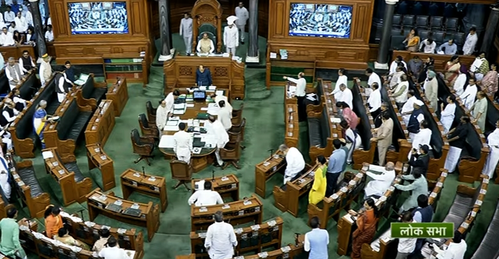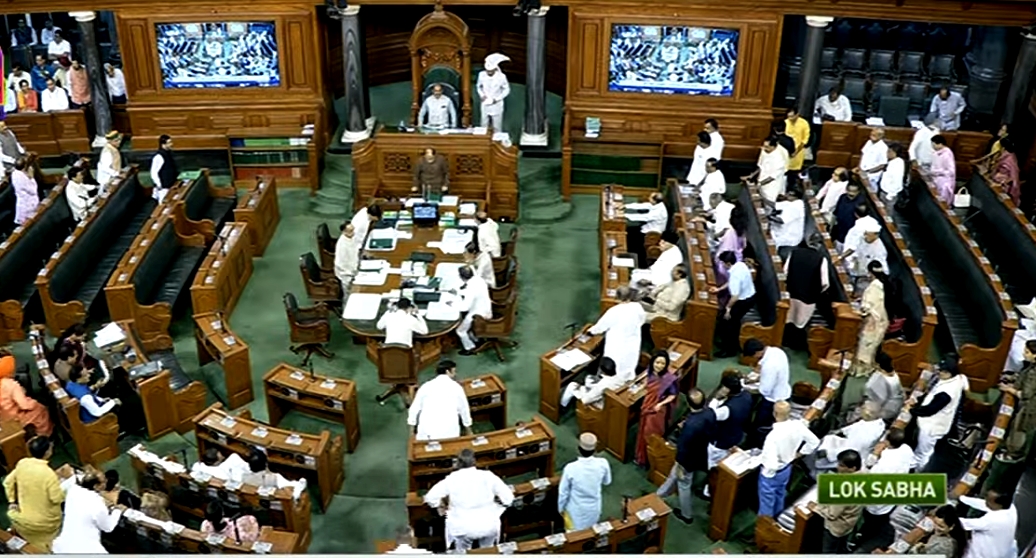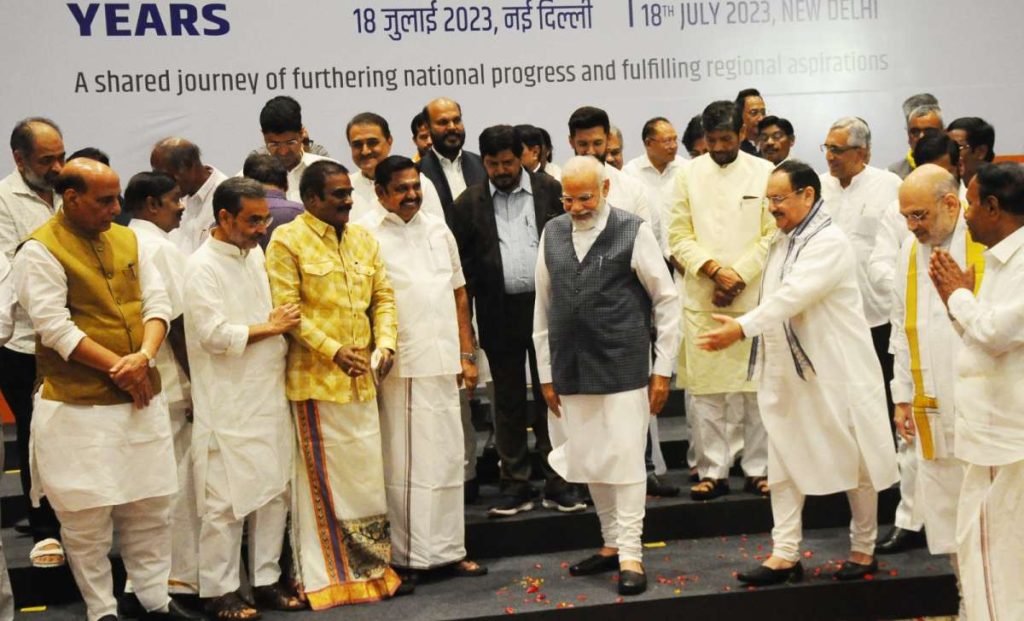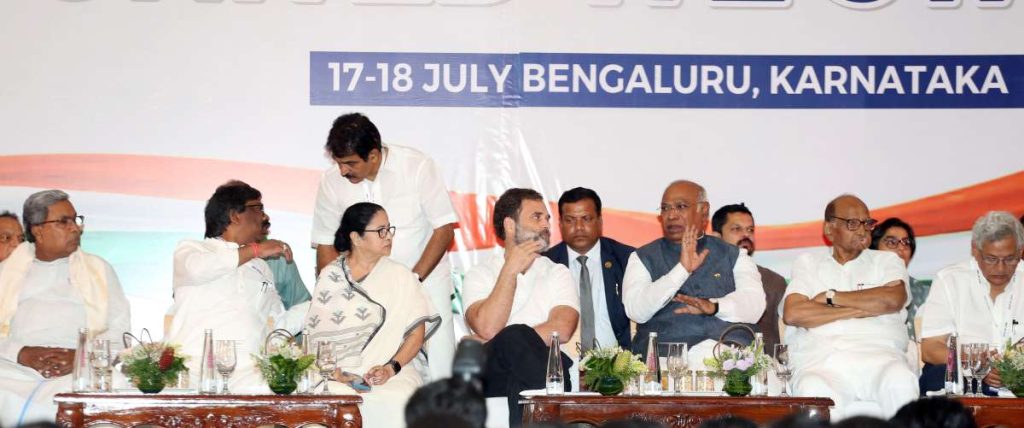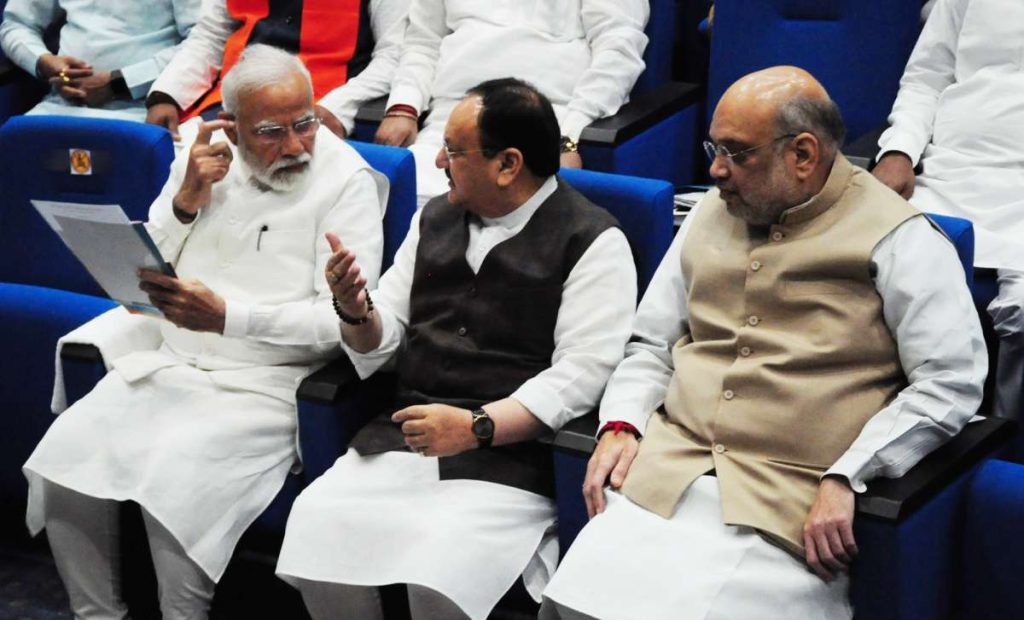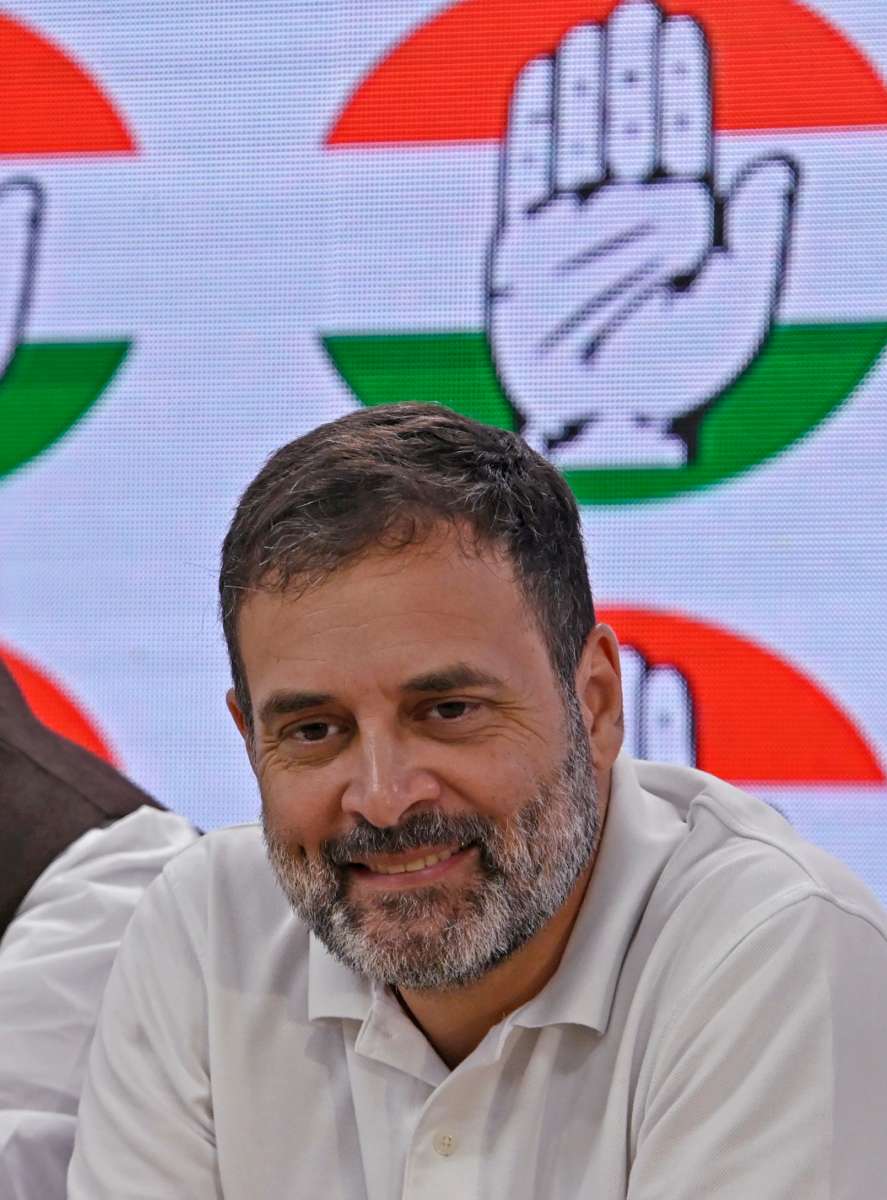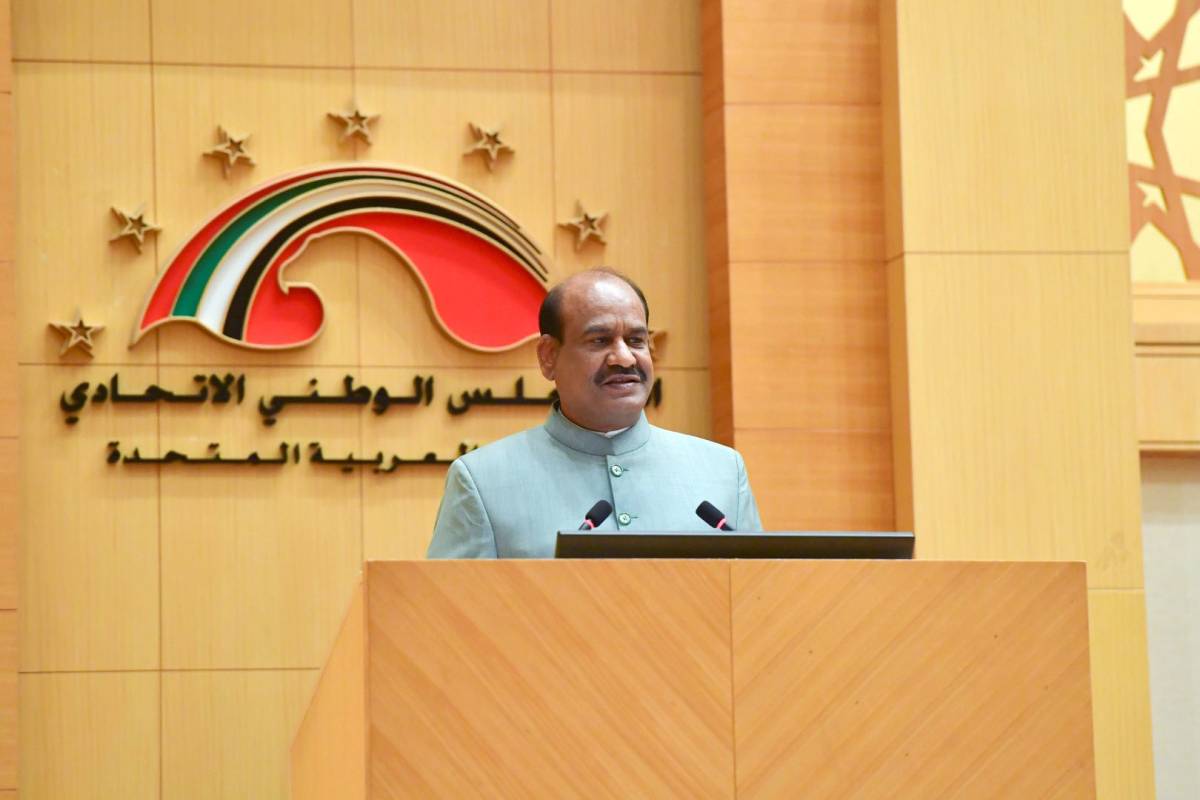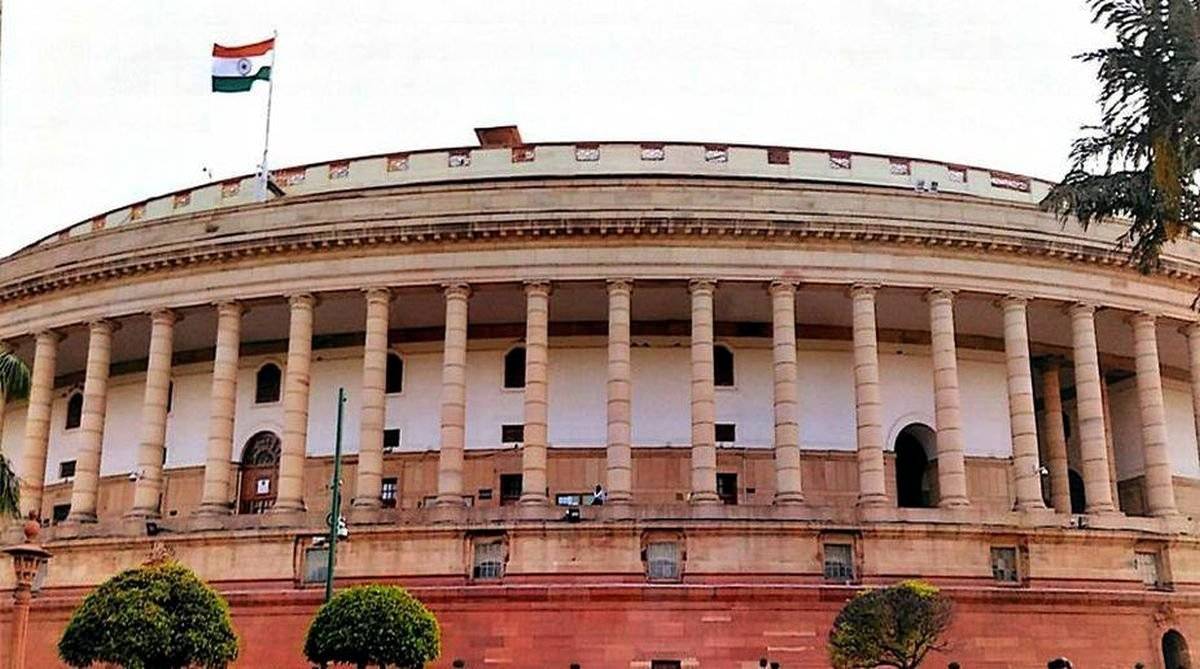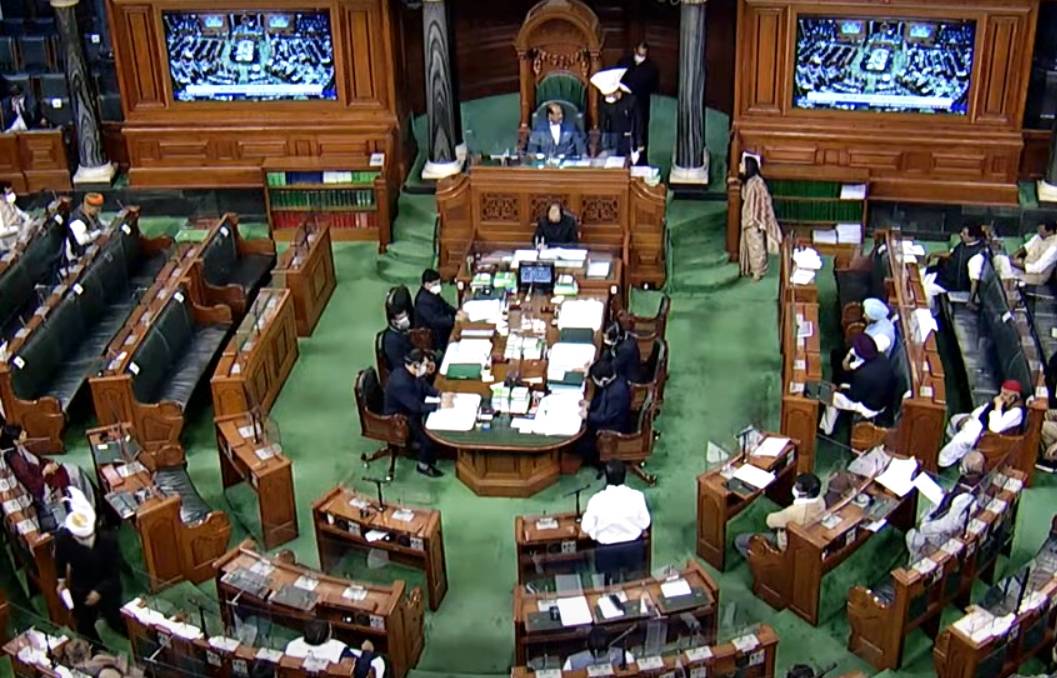Once the bill was passed after an hour-long discussion in the House, the Congress-led Opposition staged a walk out….reporsts Asian Lite News
Lok Sabha on Monday passed the Digital Personal Data Protection Bill, 2023, amid noisy protests by the Opposition, which later staged a walk-out after their request for raising a point of order was disallowed.
The point of order was on the allegations levelled by BJP MP Nishikant Dubey on Congress party and Rahul Gandhi.
Leader of Congress in Lok Sabha Adhir Ranjan Chowdhury tried raising the point of order along with other party members, but Kirit Solanki, who was adjudicating the proceedings, did not allow it.
Even Biju Janata Dal MP Bhartruhari Mahtab could be seen expressing his displeasure over the lack of order in the House when the bill got passed.
He was heard saying that bills cannot be passed when there is no order in the House, and if this is the manner in which bills are to be passed, then the House should pass all the bills.
Once the Digital Personal Data Protection bill was passed after an hour-long discussion in the House, the Congress-led Opposition staged a walk out.
Minister for IT and electronics Ashwini Vaishnaw while piloting the bill, said that it has all the provisions to ensure protection of public’s data.
He said that it is framed in a simple language, is gender sensitive, and based on the principles of legality.
Vaishnaw further said that the bill also ensures data minimisation, accuracy of data and time limit on data storage.
During an almost hour-long discussion on the bill, in which eight MPs across parties participated, concerns were raised on lack of independent regulator, with Mahtab even saying that the bill was more about data processing rather than data protection.
Vaishnaw allayed the fears of the members, saying that the government has introduced certain “legitimate causes” where the government and private entities can process citizens’ data without explicit consent.
It will also impose restrictions on platforms on processing children’s data, he said.
The bill also mandates that India have its data protection regulator in the form of a Data Protection Board. The bill says the chairperson and members of the board will be appointed by the Union government.
Apart from that, the bill also has provisions that give wide exemptions to the government. The proposed law says its provisions will not apply in respect to the processing of personal data when notified by “instrumentality of the state as the central government may notify”.
In the Monsoon Session of Parliament last year, the Union government had withdrawn the Data Protection Bill with the aim of bringing a comprehensive legislation.
Vaishnaw had said that the joint parliamentary committee, which went through the original draft, suggested 88 amendments to a bill of 91 sections, which led the government to decide that there was “no option” but to withdraw the original Bill completely.
In November, the government brought another draft of the Digital Data Protection Bill and put it for public consultation.
The focus of the Bill is to protect internet users from online harm and create a safe and trusted digital ecosystem as India is a digital economy powerhouse today.
The reintroduced draft Digital Personal Data Protection Bill, 2022, proposes six types of penalties on non-companies to companies. To prevent a personal data breach, a penalty of up to Rs 250 core was being proposed in the draft bill.
Besides, failure to notify the Board and affected Data Principals in the event of a personal data breach and non-fulfilment of additional obligations in relation to Children may attract Rs penalty up to Rs 200 crore.
Non-fulfilment of additional obligations of Significant Data Fiduciary under the sections 11 and 16 of the Act may attract Rs 150 crore and Rs 10 crore fines, respectively.
Further, non-compliance with provisions of this Act other than those listed in (1) to (5) and any rule made thereunder will attract penalties up to Rs 50 crore.
Regarding the transfer of personal data outside India, the Bill says the central government may, after an assessment of such factors as it may consider necessary, notify such countries or territories outside India to which a Data Fiduciary may transfer personal data, in accordance with such terms and conditions as may be specified.
In a major exemption, the central government may, by notification, exempt from the application of provisions of this Act, the processing of personal data by any instrumentality of the State in the interests of sovereignty and integrity of India, security of the State, friendly relations with foreign States, maintenance of public order or preventing incitement to any cognizable offence.
During the drafting of the Personal Data Protection Bill, 2019, the Centre said the entire gamut of principles was widely debated and discussed. These include rights of individuals, duties of entities processing personal data and regulatory framework, among others. (with inputs from agencies)
Panel recommends adequate representation in judicial appointments
Noting lack of reservation, Department-related Parliamentary Standing Committee on Personnel, Public Grievances, Law and Justice recommended for adequate representation of various sections of Indian society in the judicial appointments at High Courts and Supreme Court level to strengthen the trust, credibility, and acceptability of the judiciary among the citizens.
The Department-related Parliamentary Standing Committee on Personnel, Public Grievances, Law and Justice chaired by Rajya Sabha MP Sushil Kumar Modi presented its 133rd report on the subject “Judicial Processes and their reform” to both the Houses of Parliament on Monday.
Raising points in its Para 12 of the report that our higher judiciary suffers from a “diversity deficit”, the Committee mentioned that the representation of Scheduled Castes (SCs), Scheduled Tribes (STs), Other Backward Classes (OBCs), women, and minorities in the higher judiciary is far below the desired levels and does not reflect the social diversity of the country.
In recent years there has been a declining trend in representation from all the marginalized sections of Indian society, said the Committee.
“Though there is no provision for reservation in the judicial appointments at High Courts and Supreme Court level, the Committee feels that adequate representation of various sections of Indian society will further strengthen the trust, credibility, and acceptability of the Judiciary among the citizens,” said the Committee in the report’s Para 13.
In the report’s Para 16, the Committee also mentioned that “while making recommendations for appointments to the Higher Judiciary, both the Supreme Court and the High Court’s Collegiums should recommend an adequate number of women and candidates from the marginalized sections of the society including minorities.”
“This provision should be clearly mentioned in the Memoranda of Procedure (MoP), which is presently under finalization.”
Further, as of now, data related to the social status of High Court judges are available from 2018 onwards, the Committee, in the report’s Para 17, recommended the Department of Justice find ways and means to collect such data in respect of all judges presently serving in the Supreme Court and High Courts.
“For doing this, if required, necessary amendments may be brought in the respective Acts and service rules of the judges,” pointed the Committee in the report.
This report concerns the higher judiciary of the country like Supreme Court and High
Courts wherein the committee examined issues and suggested six reforms that included Social Diversity in the appointment of Judges in the High Court and Supreme Court, feasibility of Regional Benches of Supreme Court, exploring the possibilities of increasing the retirement age of High Court and Supreme Court Judges, vacations in the Supreme Court and High Courts, mandatory declaration of assets by the Judges of the Supreme Court and High
Courts and preparation and publication of Annual Reports by the Supreme Court and High Courts. (ANI)

